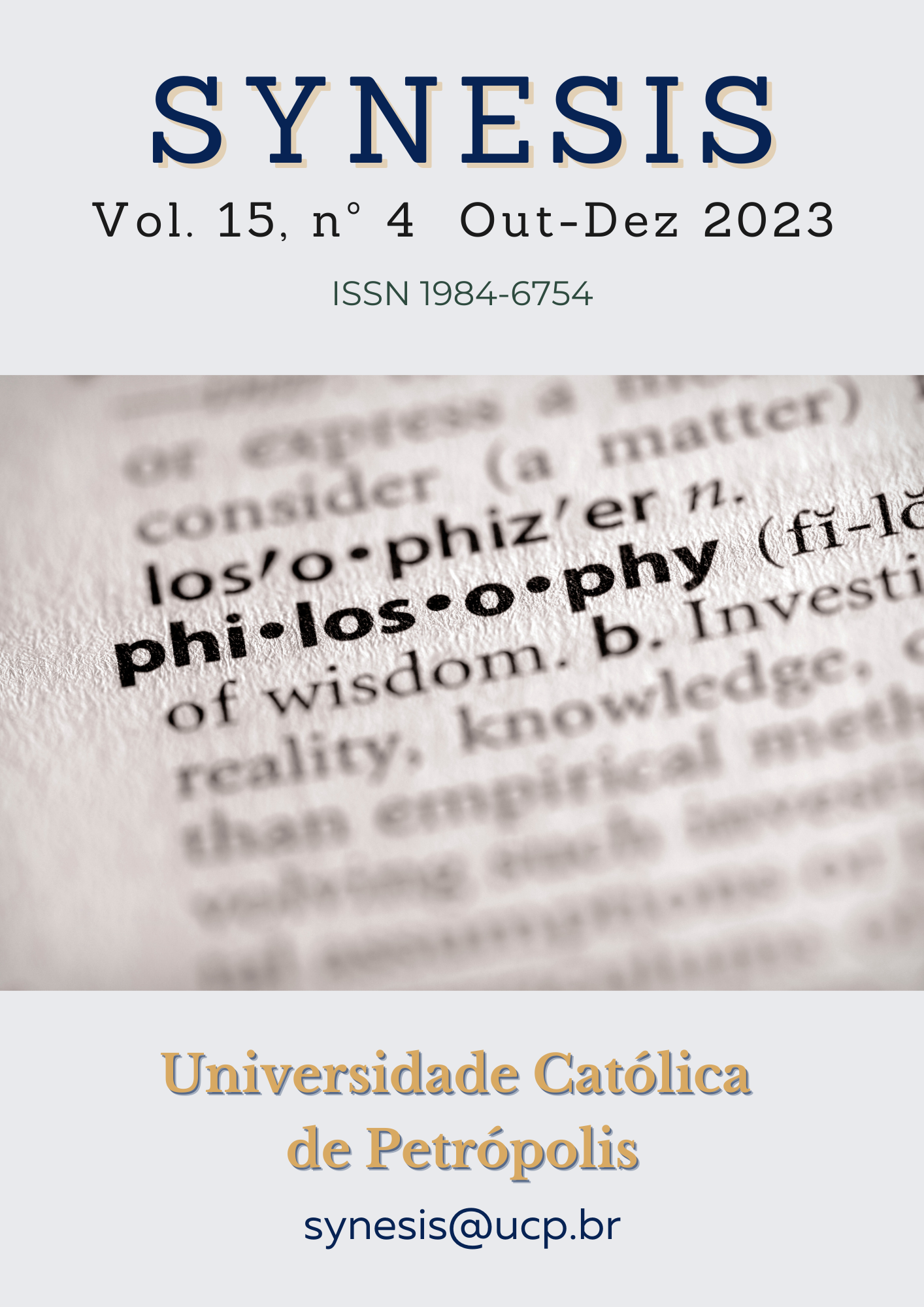Resumo
A educação é um processo de aquisição de competências para a vida e não pode ser indispensável. Os autores da Constituição esforçaram-se por tornar a educação acessível a todos. Foram acrescentadas algumas disposições com o objetivo de as pôr em prática. Desde a promulgação da Constituição da Índia, percorremos um longo caminho para estabelecer o ensino obrigatório para determinados grupos etários e facilitar o acesso ao ensino, bem como o modo de ensino. No início da pandemia de Covid-19, a educação foi uma das instituições mais afectadas em todo o mundo. O modo de ministrar o ensino foi totalmente transferido para a plataforma virtual, que existia anteriormente, mas era acessível a um número muito menor de pessoas devido ao elevado custo, à falta de produtos tecnológicos e a outras razões infra-estruturais. No entanto, a transferência obrigatória do ensino para plataformas virtuais não disponibilizou facilmente as infra-estruturas necessárias a todos os estudantes e, em vez disso, abriu caminho a um novo mercado - a tecnologia da educação. O documento abordará as principais preocupações que o sector da educação enfrenta no dia a dia do ponto de vista do estudante e explorará ainda mais a mudança no modo de ensino da plataforma tradicional para a plataforma virtual moderna, a fim de compreender o âmbito e a solução ao abrigo da Lei de Proteção do Consumidor de 2019. O documento será dividido em duas partes: em primeiro lugar, será analisada a jurisprudência sobre o estatuto da "educação como serviço"; em segundo lugar, será discutida a mudança de ingredientes na visão tradicional aceite da educação e da instituição educativa e, por último, mas não menos importante, será justificado o tema central através de sugestões e recomendações.
Referências
AHER, S. et al, Regulation of E-Commerce in India under Consumer Protection Act, 2019: An Overview, International Journal of Law Management & Humanities, v.4, p.1547, 2021
AHMAD, S. Access Denied: Right to Education in India during Covid-19, Jus Corpus v.1, p. 468, 2021
ATLANTIC COUNCIL, “Key Strategies for Providing Effective Primary Education. 2017. Available from: http://www.atlanticcouncil.org/. Access on: 29 June, 2023
Bangalore Water Supply and Sewerage Board v. A. Rajappa, (1978) 2 SCC 213.
BHATIA, P. et al., Review of Data Privacy Laws and Case Study, International Journal of Creative Research Thought, v. 8, p. 2923, 2924 – 2925, 2020.
Bihar School Examination Board v. Suresh Prasad Sinha, (2009) 8 SCC 483
BRESCIA. W. et al. Designing and Developing Web-Based Continuing Legal Education, Legal Reference, v 23, p. 171- 191, May 2004.
Buddhist Mission Dental College & Hospital v. Bhupesh Khurana, (2009) 4 SCC 473.
Consumer Protection (E-Commerce) Rules, 2020
Consumer Protection Act, 2019
CRANMAN, K. A. Privacy and Technology: Counseling Institutions of Higher Education, Journal of College and University Law, v. 25, p. 69, 1998.
DAVE, N. et al. Cascading Effects of COVID-19 Pandemic across Economic and Social Sectors of India, Liberal Studies, v. 5, n. 1, 2020
DEVI, K.V.L.M. et al. Critical Analysis on the Impact of Covid-19 over Economy, International Journal of Management & Humanities, v. 3, n.3, p. 1997 - 2004, 2021.
ECONOMIC TIMES, Loss after loss: Parents detail how Byju's pushed them into debt, 2022. Available from: https://economictimes.indiatimes.com/tech/startups/loss-after-loss-parents-say-byjus-pushed-them-into-debt/articleshow/96222272.cms. Access on: 12 June 2023
GARON, J.M. Legal Education in Disruption: The Headwinds and Tailwinds of Technology, Connecticut law Review, v. 45, p. 1165, 2013.
GUPTA B. et al. Impact of Online Education on Students in Covid-19, International Journal of Management & Humanities, v. 4. p. 2997, 2021
JOSHI, M. EdTech Companies & the Ambit of E-Commerce Entities Under the Consumer Protection Rules, 2020?. Available from: https://www.samvidhi.org/post/edtech-companies-the-ambit-of-e-commerce-entities-under-the-consumer-protection-rules-2020. Access on 2 June 2023.
Maharshi Dayanand University v. Surjeet Kaur, (2010) 11 SCC 159
Malaya Joshi, EdTech Companies & the Ambit of E-Commerce Entities Under the Consumer Protection Rules, 2020? Available from: https://www.samvidhi.org/post/edtech-companies-the-ambit-of-e-commerce-entities-under-the-consumer-protection-rules-2020. Access on 11 June, 2023
P.A. Inamdar & Ors. v. State of Maharashtra &Ors, (2005) 6 SCC 537
P. Sreenivasulu & Anr. v. P.J. Alexander, Civil Appeal Nos. 7003-7004 of 2015 (Decided on September 09, 2015).
P.T. Koshy v. Ellen Charitable Trust, (2012) 3 CPC 615 (SC)
PATIL, A.R. Product Liability Action: A Tooth to Strengthen Consumer Protection, International Journal on Consumer Law and Practice, v. 10, p. 99- 119, 2022
POORNA, S.J, A Critical Analysis of Consumer Protection Act 2019, Supremo Amicus, v. 15, p. 283, 2020.
RONALD, S.A. COVID-19: Legal Drawbacks & Changes Seen Across India, Supremo Amicus, v. 17, 2020
SAHA, A. et al, Evolution of Consumer Courts in India: The Consumers Protection Act 2019 and Emerging Themes of Consumer Jurisprudence, International Journal on Consumer Law and Practice, v. 9, p. 115, 2021
SARKAR, S. Consumer Expectations and Consumer Protection, The George Washington Law Review, v. 88, n. 4, p. 949- 1013, 2020 .
SHRIVASTAV, A. et al. Understanding the Impact of Covid-19 on Education, Legal Spectrum Journal, v. 1, 2021
SINGH K. Right to Education, India International Centre Quarterly, v. 42, n. 3/4, p. 119-130, 2015
SINGH, R.D. et al, Ed-Tech Companies and The Consumer Protection Act. Available from: https://www.mondaq.com/india/dodd-frank-consumer-protection-act/998116/ed-tech-companies-and-the-consumer-protection-act. Access on: 20 June 2023
The Constitution of India, 1950
TIWARY, A. Education during Covid-19, International Journal on Management and Humanities, v.3, p. 1121, 2020
WOBBEKIND, R. L. On the Importance of Education. Business Economics, v. 47, n. 2, p. (90 - 96), 2012
ZULKIFLI, In The Struggle of the Shias in Indonesia, Southeast Asia, Indonesia, ANU Press, 2013. Available from: http://doi.org/10.22459/SSI.11.2013. Access on: 25 July. 2023

Este trabalho está licenciado sob uma licença Creative Commons Attribution-NonCommercial-NoDerivatives 4.0 International License.
Copyright (c) 2023 Synesis (ISSN 1984-6754)

